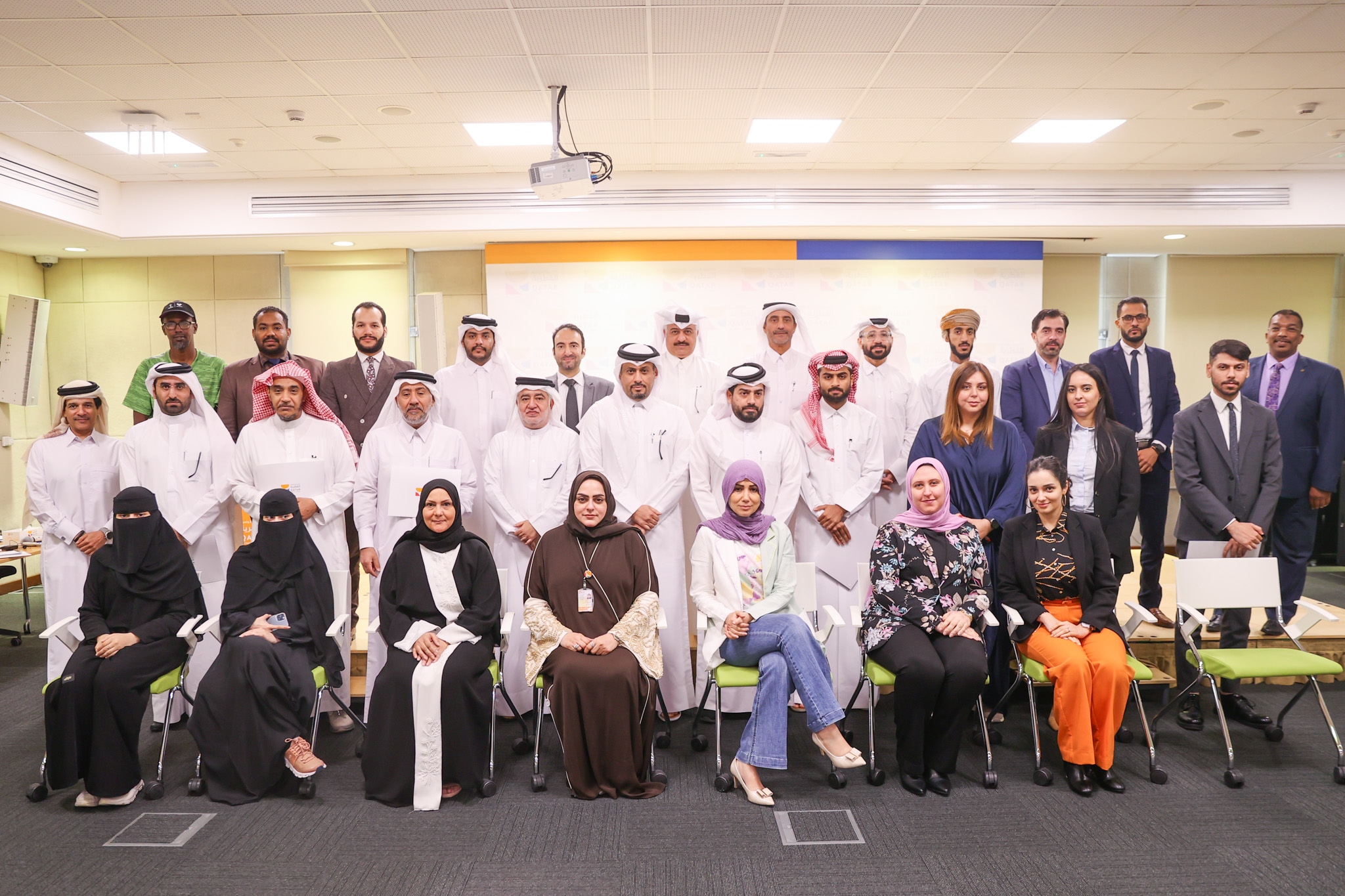Doha:
The Qatar Olympic Academy concluded its second specialized course in the field of sports law, which is included in the Academy's agenda for this year, which was entitled "Specialized Legal Program in the Field of Sports Law". The course was held in collaboration with the Legal Affairs Department of the Qatar Olympic Committee, as well as a research team consisting of elite law professors within a project funded by the Qatar National Research Fund.
This course was attended by nearly 40 students from inside and outside the State of Qatar, including experts and consultants in the field of law in state institutions and ministries, in addition to a number of lawyers and owners of law firms interested in the field of sports law.
The specialized legal program in the field of sports law is one of the awareness programs in the legal aspects in the sports field, which aims to spread the legal culture in the sports field among societies in general, with the aim of reaching distinguished results, which contribute to raising the level of sports in various regional, continental and international fields, so that it adds to the target group a lot of knowledge and clarifications on sports law, and how to deal with regulations and regulations correctly and professionally.
The program included six lectures in various legal fields in sports, presented by a group of law professors at Qatar University, who took turns to present them according to their specializations.
The beginning was with a lecture on "Resolution of Sports Disputes" presented by Dr. Ahmed Sayed Mahmoud, in which he talked about the subjectivity of sports disputes, the role of the ordinary and administrative state judiciary in the field of settling sports disputes, the role of alternative means in resolving sports disputes by arbitration, conciliation or conciliation, in addition to the competent authorities for conciliation and sports arbitration, and the procedural mechanisms for that, in light of the Qatari internal texts and international texts.
The second lecture on the first day was presented by Dr. Shaker Mezoughi, which was entitled "Professional Athlete Contracts", in which he talked about many axes, including the types of professional players' contracts, the distinction between professional player contracts and amateur players, the types of professional players, the problems raised by the professional player transfer contract and the effects of transfer contracts, dispute resolution related to professional players' contracts, and the law applicable to them if they are international contracts.
The lectures of the second day began with a lecture entitled "Sports Administrative Organization" presented by Dr. Muhannad Noah, in which he talked about the legal administrative structure of sports structures, for sports federations, the Qatar Olympic Committee, its relationship with international sports organizations (international federations), and its relationship with legal persons that arise in order to carry out a specific task within the framework of sports activity, such as professional ties.
The second lecture was presented by Dr. Khalid Al-Shammari entitled "Criminal Aspects in the Sports Field", in which he presented several axes, the most important of which are related to the crimes of stadium hooliganism, betting, manipulation of the results of sports competitions, illegal trafficking in match tickets, and mass behaviors that violate public order and morals.
The third and final day, Dr. Shaker Al-Mezoughi presented the first lecture, which was entitled "Commercial Investment in the Sports Field", where he talked about the role of private capital in sports investment, and the legal implications of that, and stressed the need for sports clubs to suit legal entities of a commercial nature to meet this investment need, then moved on the legal aspects in attracting capital and investing sports facilities as well as intellectual rights associated with sports activity.
The end of the program was with Dr. Ahmed Samir, who gave a lecture entitled "The field of the legal system for the trading of sports doping", which is one of the very important axes in the sports street, where he talked about sports doping from a legal point of view, the concept of doping and its types, the internal legal regulation of doping in the Qatar Games, the international legal regulation of doping, the extent to which doping is criminalized by athletes and incitement to take them and trafficking in doping substances.
More news

الأكاديمية الأولمبية القطرية تختتم دورة الإعلام الرياضي
اختتمت دورة التعامل مع وسائل الإعلام الرياضي في مقر الأكاديمية الأولمبية القطرية التي اقامتها الاكاديمية الاولمبية واستمرت لمدة خمسة أيام بمشاركة أكثر من 30 دارساً ودارسة من مختلف التخصصات الرياضية.

The country Olympic Academy is concluding the psychotherapy course for athletes.
Doha: The Qatari Olympic Academy concluded today ' s psychiatry course for athletes, which lasted from 5 to 9 May and which was attended by more than 30 students from inside and outside the State of Qatar. This course was marked by the fact that its participants represent numerous sports, administrative and artistic disciplines, including athletes, trainers, administrators, physical educators and former athletes, such as Captain Issa Basham, our former national champion of mid-range power games, the father of our Olympic and world champions, a champion of high-founcing championships, our national guard and the Sad Club, and a three-year-old hero of Immunism, a former Al-Sad Club player, Hamud Al-yazidi, a hero of his deafness, Ali Saleh Al-Hajri, and other prominent athletes on the local and global scene.

Research about hosting the World Aquatics Championship 2024
Doha: The Qatar Olympic Academy invited the Sports Impact Researchers (SIR) team from Qatar University who are currently conducting research about organizing mega sports events in Qatar and their impact on public value creation and capacity building in the higher education and sport sectors. Their research is funded by the Qatar Research and Development Innovation Council (QRDIC) for a period of three years.

